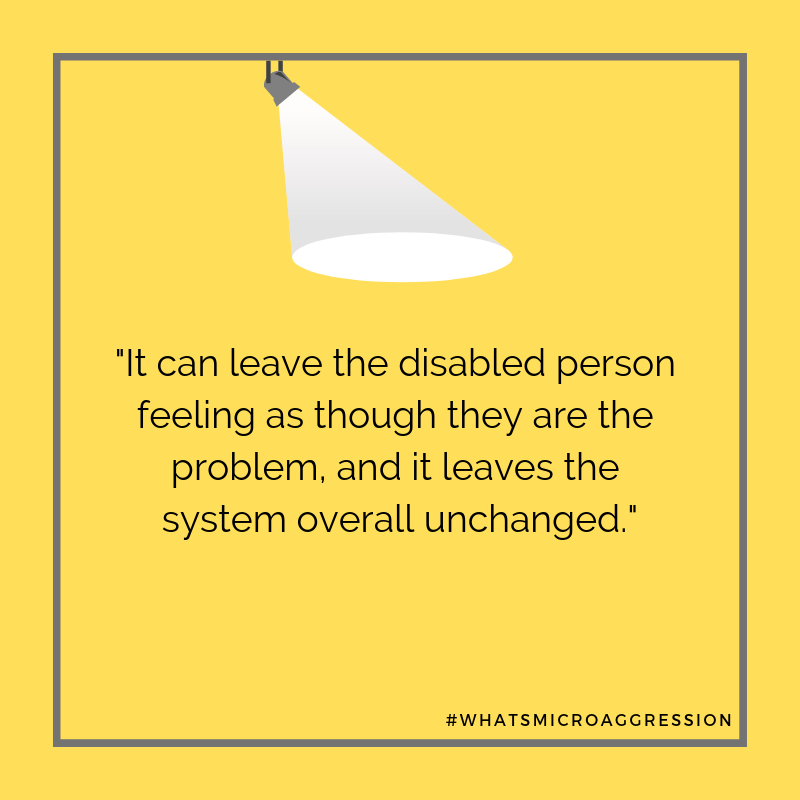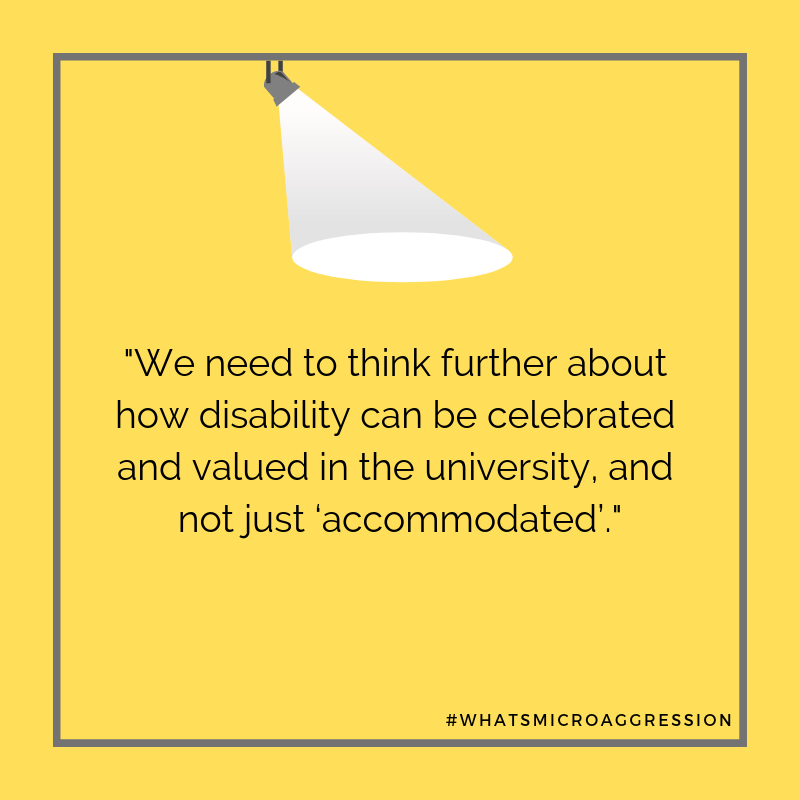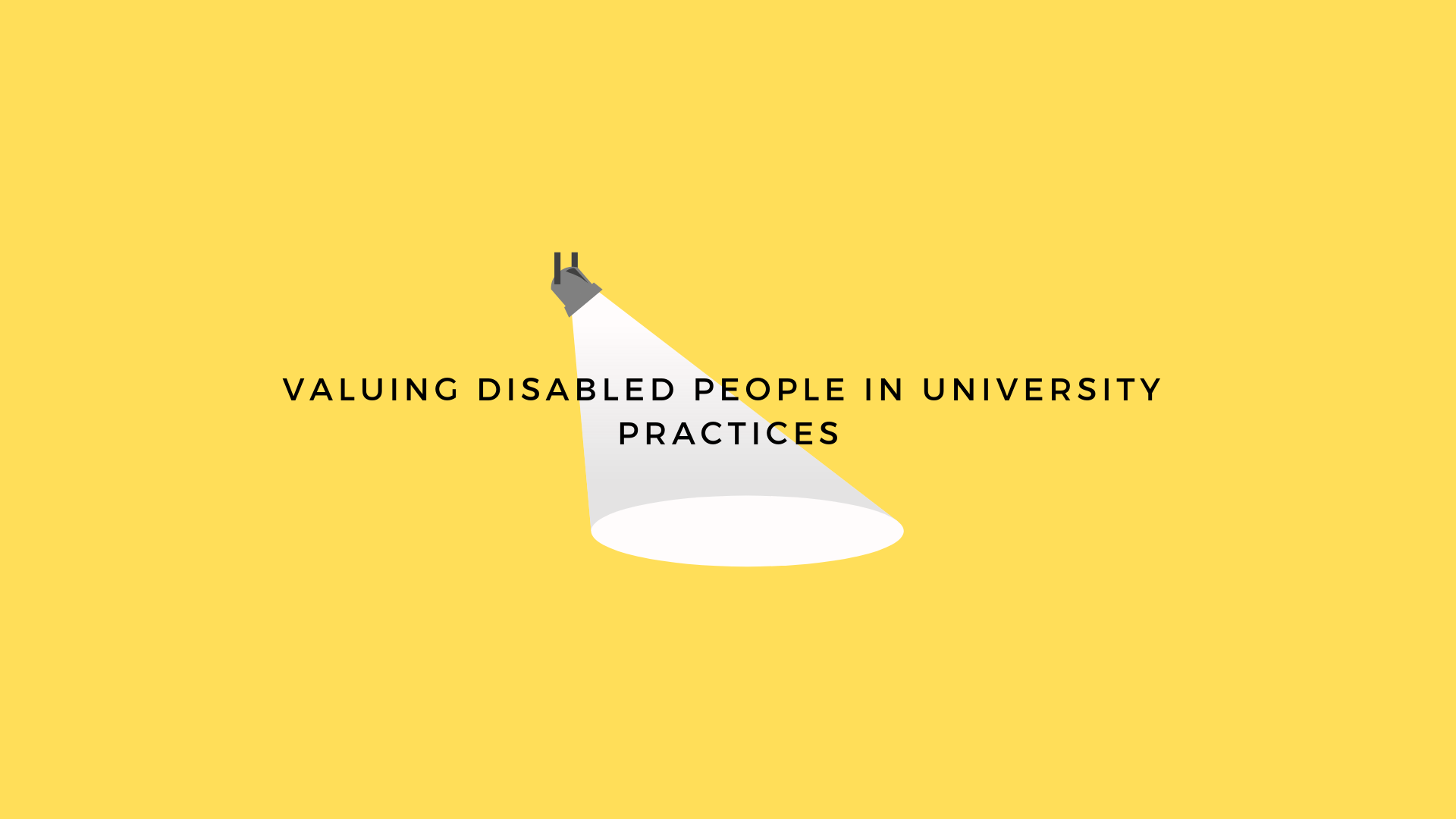By Professor Val Williams and Katrina Plumb, Chair of the Staff Disability Network
Val Williams, Chair of the staff disability network at Bristol, discusses ableism on campus as part of Epigram's #WhatsMicroagression campaign.
Micro-aggression comes in many forms, and this article is specifically about a form we are calling ‘ableism’. In the experience of disabled people on campus, the problem can be that ableism is embedded in the way things get done. In other words, the ‘aggressors’ are not aware of what is going on, because we and they are caught up in the practices that run through universities.
This is a central message from the research carried out by the Norah Fry Centre for Disability Studies from 2015-18, in which a group of disabled students took on roles as researchers of their own and others’ experiences. Disabled staff members were also central to our project, and so we looked at experiences across the spectrum. You can see all our reports and outputs and the sections relating to university practices.
Despite appreciative comments about Disability Support Services, and also about library staff, disabled students and staff found that their energies and time were taken up in managing their own support, explaining their situation to others, ensuring that rooms were accessible, and (in the case of disabled staff) liaising with the government scheme ‘Access to Work’.
This meant that it was naturally harder for this group of people to manage the deadline culture of academia, to produce research outputs and to climb the very competitive academic ladder. The university response to disability is to put in place ‘reasonable adjustments’, for instance by swapping a room to a more accessible one, when a disabled person is known to be present. That is fine, but it can leave the disabled person feeling as though they are the problem, and it leaves the system overall unchanged.

There are new and exciting things happening in supporting mental health, in planning ahead for proper inclusion at Campus Heart and Temple Quay, and in widening the boundaries of academia, see here, for instance.
Here, Beth Richards, a researcher who represents people with learning disabilities, introduced Norah Fry - one of the ten famous women’s portraits. But we need to think further about how disability can be celebrated and valued in the university, and not just ‘accommodated’.

This piece has been written with input from members of the Disabled Students’ Group. If you would like to know more, you can contact the Disabled Students’ group via val.williams@bristol.ac.uk
Explore more contributions from our #WhatsMicroaggression campaign here.









